“As God’s authoritative word, Scripture is normative for all of life, including science.” So says Craig Bartholomew, a member of the 2019–2020 Henry Resident Fellowship community. In today’s climate, these are fighting words—resulting in more heat than light.
When we hear this sentiment from Bartholomew, however, it means something quite different. First, and most basically, the statement arises out of his profound conviction about the transformative power of Scripture. “There is a great need to unleash again for today the visionary power and message of the Old Testament, not least in relation to the intellectual life of humankind” says Bartholomew.
Second, it is accompanied by hermeneutical sensitivity. To claim that Scripture has a normative role for all of thought, says Bartholomew, requires nuance in practice.Bartholomew’s research project is intended to “unleash” the visionary power of Scripture by bringing conviction and nuance back into Old Testament study. When we ask how Scripture norms all of thought, including scientific inquiry, the hermeneutical question moves to the forefront—a topic for which Bartholomew is no stranger. Indeed, as the founder of the influential Scripture and Hermeneutics Seminar and the author or editor of twelve books on hermeneutics and interpretation, he is a leading evangelical luminary in biblical hermeneutics.See et al., Introducing Biblical Hermeneutics: A Comprehensive Framework for Hearing God in Scripture, Scripture and Hermeneutics Series, Dictionary for Theological Interpretation of the Bible.
Bartholomew’s research project, generically titled “Creation, Divine Action, the Old Testament, and Modern Science,” is intended to “unleash” the visionary power of Scripture by bringing conviction and nuance back into Old Testament study. His project proceeds with one, complex, underlying conviction: Nothing is more urgently needed in the church today than “the recovery of a robust doctrine of creation,” and further, the recovery of the doctrine of creation requires that we recover the God of the Old Testament. “If God is as significant as the OT proposes, then there will be no area of study he leaves untouched.”
God, Creation, and Old Testament Theology
While Bartholomew is a theological generalist, ranging from Kuyper studies and philosophy to hermeneutics and modern philosophy, his disciplinary home is in fact Old Testament studies. And as he reflects on the reception of Old Testament theology, he finds it lacking from two different directions.
On the one hand, Bartholomew claims, classic Christian theology, which was forged in the context of the Greco-Roman world, has tended to articulate its doctrine of God and creation with categories and concepts originating more from philosophy than Scripture.While Bartholomew is a theological generalist, ranging from Kuyper studies and philosophy to hermeneutics and modern philosophy, his disciplinary home is in fact Old Testament studies. Consequently, contrasts like abstract/material, transcendent/immanent, and intellectual/sensual have done some heavy lifting in our theological understanding. Conversely, according to Bartholomew, the real distinction in Scripture is between Creator and creation—a distinction able to find God’s presence in the material, contingent, and temporal no less than in the immaterial, necessary, and eternal.Of course, this distinction is also found in the tradition; the question is whether it went far enough in working out those implications in the development of our theology. In light of this backdrop, Bartholomew believes “There is a major need to put the OT back into the heart of our theologies of God, creation, and divine action.”
Yet, on the other hand, “God” is not a focal topic in Old Testament studies. If Christian theology’s doctrine of God inadequately draws on the Old Testament, those committed to the study of the Old Testament infrequently set their attention on God. “Nowadays it is difficult to take God seriously in mainstream OT studies,” says Bartholomew. In some instances, the topic of God is explicitly bracketed. According to John Barton, for example, it is “methodologically essential” that critical, Old Testament scholarship bracket “questions of theological truth.”John Barton, The Nature of Biblical Criticism (Louisville: Westminster John Knox, 2007), 164. According to Bartholomew, “Liberal OT study is characterized by the exclusion of God as a formative factor in the OT.” He continues, “Evangelical scholarship, less so, but even here we find a reluctance to allow the doctrine of God to play a full role.” Bartholomew calls his own method “post-critical”—acknowledging the gains made by historical criticism and the situating of the text in its context, but he also believes that “when the living God comes to us,” the text transcends its context “in vitally important ways.”
In Bartholomew’s opinion, this twofold problem leaves a significant hole in Christian scholarship. Stated positively, “It is only when the role of God in Israel is given its full force that the unique contributions of the OT come to the fore.” And that is precisely what Bartholomew intends to do. Already under contract with SPCK, Bartholomew plans to write a four (or five) volume series, provisionally titled “Old Testament Origins and the Question of God.” As the title suggests, Bartholomew hopes that his project will provide for Old Testament studies something comparable to what N. T. Wright did in New Testament studies.
An Ecology of Interpretation
Returning, then, to the question of Scripture’s normativity: What has the doctrine of God to do not only with Old Testament studies, and not only with the doctrine of creation and divine action, but also with various issues related to modern science? According to Bartholomew, “If we think of the Scripture-science relationship as an ecology, then there are many, complex, interrelated entities that constitute this ecology.” That nexus must begin with God. “When God is given his rightful place in the OT, we find its message unique, radical, and comprehensive, with all sorts of implications for the intellectual life and, not least, for science.” It is wrong-headed, therefore, to separate science and theology or to claim, as many have, that Scripture makes no claims about the material world.See, for example, John Walton and D. Brent Sandy, The Lost World of Scripture: Ancient Literary Culture and Biblical Authority (Downers Grove: IVP Academic, 2013). According to Walton, Scripture provides “no new revelation about the workings and understand of the material world” (49).
Part of Bartholomew’s residency will be spent clarifying his understanding of this “complexity” and “nuance”—a “detailed mapping of the terrain,” as he says. So, he does not yet have a complete account of the way that Scripture norms science, or of the “vibrant dialogue” that he expects to open between them. But he does have several provisional starting points toward an answer, two of which will figure in his residency and are worth noting.
1. Scripture, Models, and Ontology
First, there is and always has been a hermeneutical circle between our model of the God-creation-divine action nexus and the biblical text. Several of those models have been deemed out-of-bounds (e.g., Gnosticism, process theology), but within orthodox theology there is much constructive thinking already underway. This hermeneutical circle between biblical text and theological models/theories alerts us to the role of concepts and thus of philosophy and theology in our articulation of the nexus. Extending this fact to the “vibrant dialogue,” Bartholomew does not believe that we should look for the points of discussion and intersection in the detailed answers to scientific questions. Rather, he suggests, “I would expect the contact point to be via the foundational issues of ontology and epistemology and one’s theory of theorizing.”
2. Scripture, Science, and Metaphor
Bartholomew finds a second fertile area of overlap between science and theology in the realm of metaphor, specifically their “comparative metaphorical structure.” Scripture is chock full of metaphors, and metaphors also figure prominently in scientific discourse. Following an idea borrowed from George Steiner, Bartholomew believes that we must ground metaphors in “a grammar of creation.” “My hunch,” he says, “is that a grammar of creation may not only ground the metaphoricity of science but also provide vital clues for how Scripture norms science.” He admits that this is an area where he has much work to do, but looks forward to the time and community of fellowship, which will allow for such theological exploration.
Old Testament Origins and the Question of God
During Bartholomew’s residency, he hopes to accomplish several projects in relation to these wider concerns.
His time will be especially dedicated to the completion of volume 1 in the “Old Testament Origins and the Question of God” series. In addition to developing the methodological priority of God in Old Testament studies, that volume will also address several of the issues addressed in this article: the relationship between the Old Testament and (1) its historical context, (2) philosophy, (3) language, and (4) modern science. Insofar as the work successfully re-positions God as the center and focus of Old Testament theology, this volume could have wide-ranging implications in the science and theology discussion. In addition to beginning his major, multi-volume Old Testament theology, Bartholomew also intends to make headway, likely in the form of an article, on metaphor and science, as well as begin work on a popular level book, intended for thinking laity and undergraduates, a model for Scripture norming science.
Throughout, his primary aim is the modest task of unleashing the Old Testament—in other words, removing the intellectual restraints that conceal the God of Scripture and his revealed word to us.
2019-2020 Henry Resident Fellows
 |
Henry Fellows Announced Theme Year: Divine Action, Contingency, and Modern Science |
 |
Craig Bartholomew Director, Kirby Laing Institute for Christian Ethics Project: “Creation, Divine Action, the Old Testament, and Modern Science” |
 |
Craig Keener Professor of Biblical Studies, Asbury Theological Seminary Project: “The Credibility of Special Divine Action in Mark’s Gospel and Today” |
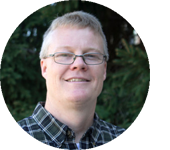 |
Brian Matz Endowed Chair in Catholic Thought, Fontbonne University Project: “Divine Action and Contingency in a Little-Known Medieval Debate over Foreknowledge” |
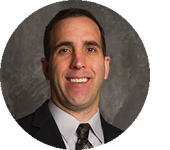 |
Paul Gould Founder and President, Two Tasks Institute Project: “Neo-Aristotelian Accounts of Divine Creation” |
 |
Jordan Wessling Curriculum Development Specialist and Adjunct Instructor, Fuller Theological Seminary Project: “Divine Action and the Autonomy of Creation” |
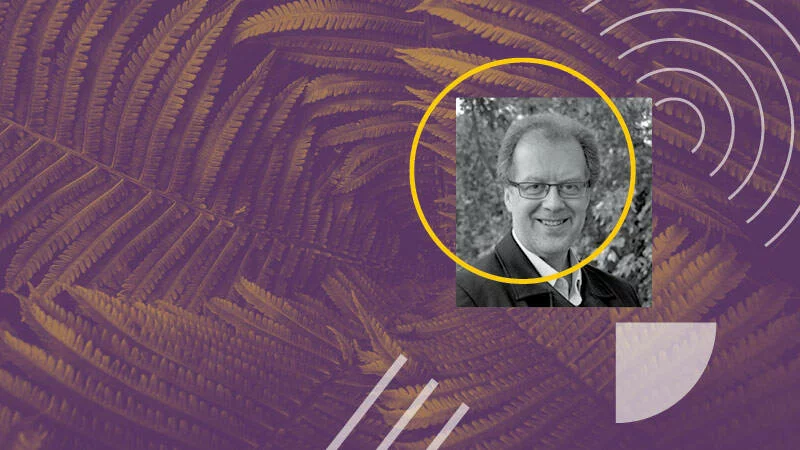
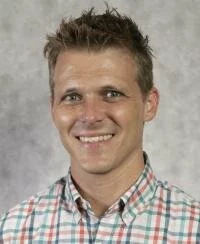


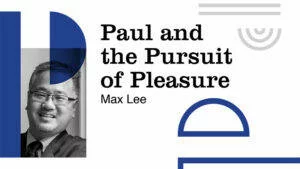

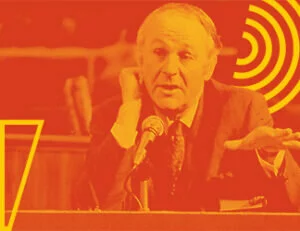
Comments
Be the first one to make a comment!